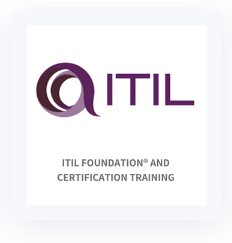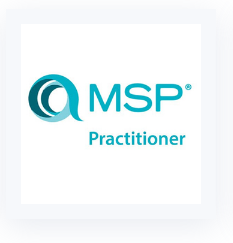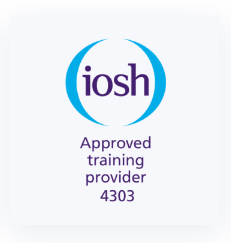Lead Auditor Course
Whether you work in quality management, health and safety, environmental sustainability, information security, or even AI governance, becoming a certified Lead Auditor can significantly transform your career. This article will walk you through everything you need to know about a Lead Auditor course, what it involves, why it matters, and how it fits into your long-term professional development.
Why Professionals Are Choosing the Lead Auditor Path
As industries become more regulated and quality-focused, organizations are constantly seeking professionals who can ensure compliance with international standards. That’s where Lead Auditors come in. These individuals are not just trained to perform audits—they’re qualified to lead audits, manage teams, identify non-conformities, and report findings in alignment with ISO standards.
But a Lead Auditor training program is more than just a box to check. It provides:
Global recognition in your field
A practical skillset in auditing, risk identification, and corrective action
Qualification to lead external and internal audits
A pathway to freelance, consulting, or compliance leadership roles
Whether you’re aiming for ISO 9001, ISO 45001, ISO 14001, and ISO 27001 Lead Auditor certification gives you both the authority and the responsibility to lead with confidence.
What Exactly Is a Lead Auditor Course?
A Lead Auditor course is a structured, advanced-level training program designed for professionals who want to conduct and lead audits of management systems against ISO standards. It typically includes:
Comprehensive coverage of the chosen ISO standard (e.g., Quality, Safety, Environment, IT Security, or AI)
Audit planning and execution techniques
Audit reporting and follow-up procedures
Understanding of ISO clauses and how to apply them in real audits
Group activities, case studies, role-playing, and exams
Different Types of Lead Auditor Courses You Can Take
Choosing the right Lead Auditor training depends on your field of expertise. Here are the most common ISO standards available for auditor certification:
1. ISO 9001 Lead Auditor Course (Quality Management Systems)
Ideal for professionals in manufacturing, services, healthcare, and education. This course helps you assess an organization’s ability to meet customer and regulatory requirements.
2. ISO 45001 Lead Auditor Course (Occupational Health & Safety)
This course prepares auditors to evaluate occupational health and safety systems, making it essential for safety officers, HSE professionals, and HR compliance teams.
3. ISO 14001 Lead Auditor Course (Environmental Management Systems)
For environmental engineers, sustainability officers, and compliance auditors, this course focuses on environmental performance, legal compliance, and pollution prevention.
Who Should Take a Lead Auditor Course?
The Lead Auditor certification is not just for career auditors. It’s highly valuable for:
Quality managers and engineers
Safety officers and HSE professionals
Environmental sustainability officers
Information security and IT risk professionals
AI governance and compliance officers
Consultants, trainers, and freelance auditors
Even project managers and business owners who want to improve internal processes benefit from understanding audit systems and ISO requirements.
What You’ll Learn During Lead Auditor Training
A well-designed Lead Auditor training program covers:
Understanding of the ISO standard (clauses, terminology, and structure)
How to plan and prepare an audit
Conducting interviews and collecting evidence
Writing audit reports and presenting findings
Handling difficult audit situations professionally
How to drive continual improvement in an organization
The course also teaches the audit cycle in depth: from planning and execution to follow-up and closure. Most programs involve classroom sessions, group discussions, real-time scenarios, mock audits, and an examination to test your knowledge.
What Makes a Good Lead Auditor Course Provider?
Choosing the right training institute is critical. Here’s what to look for:
Accreditation from recognized bodies.
Experienced, certified trainers with real audit exposure
Hands-on, interactive learning, not just theory
Post-training support such as mock audits, resources, and certification guidance
Access to ISO documentation and templates
M2Y Global Academy, a trusted name in international safety and quality training, is known for offering Lead Auditor programs with practical exposure across India and the UAE.
Career Opportunities After Lead Auditor Certification
After completing your Lead Auditor course, you can expect enhanced opportunities like:
Internal Lead Auditor roles in corporates, manufacturing, healthcare, IT, and energy sectors
Third-party auditor jobs with certification bodies
Freelance or consulting positions for SMEs and startups
Training and mentoring opportunities if you enjoy teaching others
Senior compliance roles involving audit supervision and regulatory reporting
A Lead Auditor qualification is often a prerequisite for roles in global companies, export-import organizations, and safety-critical industries.
Final Thoughts: Should You Enroll in a Lead Auditor Course?
If your goal is to grow in quality, safety, security, or sustainability—and you want credentials that validate your leadership, analytical, and problem-solving skills—then a Lead Auditor certification is a worthwhile investment.
It’s more than a course; it’s a career enabler.
Frequently Asked Questions (FAQs)
Yes, certifications from accredited bodies like CQI-IRCA or Exemplar Global are recognized internationally, opening up career opportunities across multiple countries and sectors.
Absolutely. Many providers, including M2Y Global Academy, offer online Lead Auditor training with live instructor-led sessions and real-time activities.
While prior auditing experience is helpful, it’s not mandatory. These courses are designed to teach both the theory and practical skills needed to become a competent Lead Auditor.
An Internal Auditor focuses on auditing within the organization, often as part of an internal compliance team. A Lead Auditor, however, is qualified to lead audit teams and conduct third-party or external audits, making it a higher-level credential.




























































